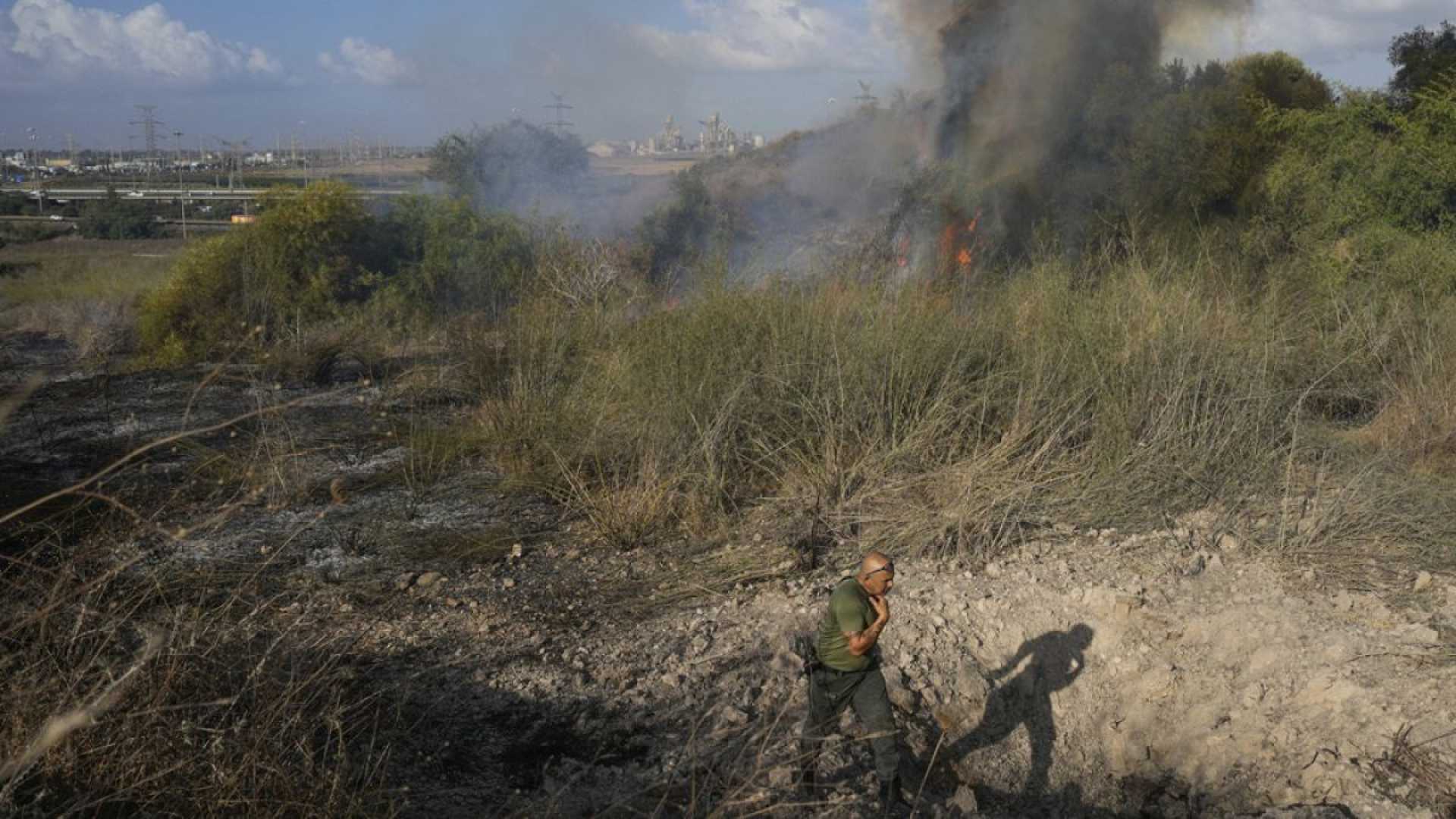News
Yemeni Group Launches Missile on Central Israel, Causes Fire But No Casualties

A Yemeni group has claimed responsibility for a ballistic missile attack that struck central Israel, marking the first time such an attack has reached the area. The missile, launched by the Houthis on Sunday, caused a fire but did not result in any direct casualties, according to the Israeli army.
The Houthis, who control most of Yemen including the capital Sanaa, announced that their missile was hypersonic. However, the Israeli military disputed this claim. The group, officially named Ansar Allah, has been conducting attacks on Israeli-affiliated vessels in the Red Sea since November, after Israel launched a significant military operation in the Gaza Strip.
The Yemeni group asserts that their attacks are conducted in support of the people in Gaza. Yahya Saree, a spokesperson for the Houthis’ military wing, stated that the group “targeted a military position of the Israeli enemy in the Jaffa area.” He claimed the missile journeyed 2,040 kilometers in just over 11 minutes.
Houthi media reported that Israel’s defense systems failed to intercept the missile. “A Yemeni missile reached Israel after ’20 missiles failed to intercept’ it,” reported the head of the Yemeni group’s Sabaa news agency.
In the aftermath of the attack, Israeli Prime Minister Benjamin Netanyahu declared that the Houthis would face a “heavy price” for their actions.
Hypersonic missiles, which travel at speeds exceeding Mach 5, are known for being difficult to detect and intercept due to their speed and ability to maneuver mid-flight. The capabilities of these missiles allow them to evade missile defense systems more effectively compared to traditional ballistic missiles. Although several nations, including Russia and China, have been developing such technology, it remains uncertain how the Houthis acquired these missiles.
Iranian President Masoud Pezeshkian remarked that his country had not supplied these missiles to the Yemeni group. “We do not have such missiles to provide to Yemen,” he said during a televised address. Despite this claim, Iran previously showcased an Iranian-made hypersonic ballistic missile, named “Fattah,” last year.
Following the missile strike, air-raid alarms were activated across central Israel, including in Tel Aviv and at Ben Gurion International Airport. The Israeli emergency services reported that nine individuals suffered minor injuries while seeking shelter. No other casualties have been reported, and airport operations resumed shortly after the incident.
Hamas expressed support for the attack, describing it as a “natural response to the Zionist entity’s aggression against our Palestinian people.” The group asserted that Israel “will not enjoy security” until it ceases its military actions in Gaza.
This recent event marks the first time the Houthis’ missiles reached central Israel, following a previous drone attack in July on Tel Aviv, which resulted in one death and several injuries. The group also claimed responsibility for attacking vessels at the Israeli port of Haifa in June, along with launching drones and missiles towards the southern city of Eilat. Despite a US-led military coalition’s efforts to curb these attacks, the Houthis have persisted in their operations in the Red Sea.












